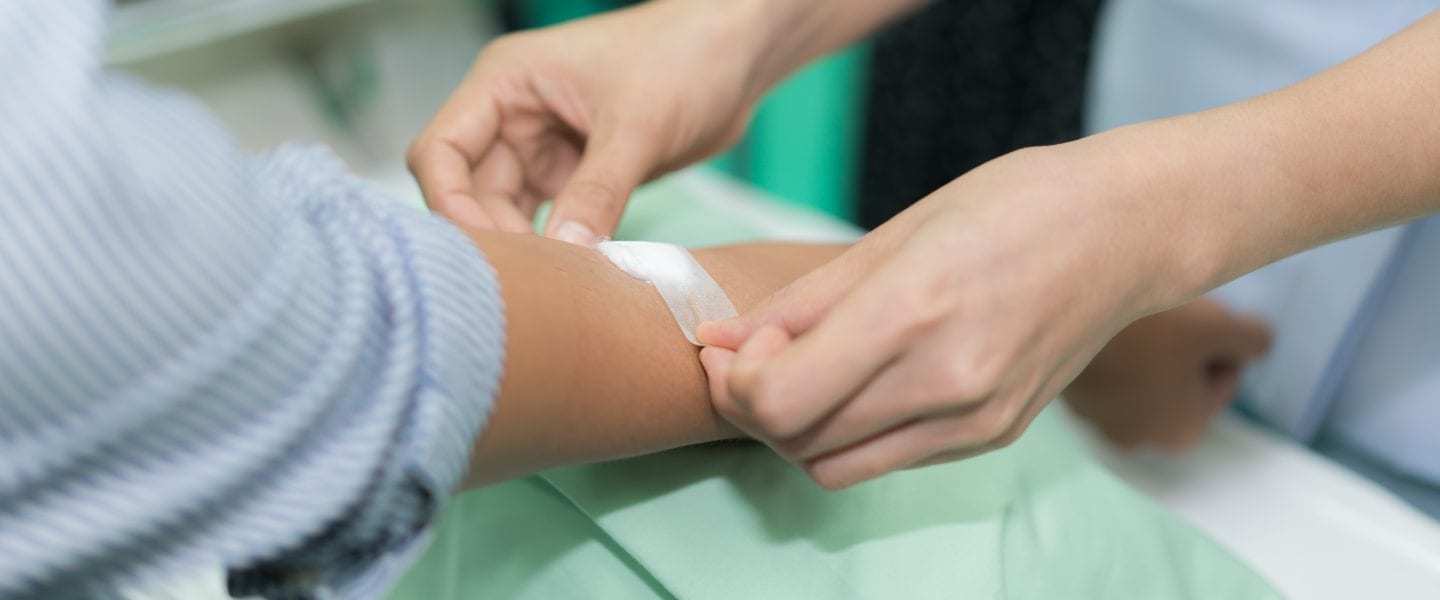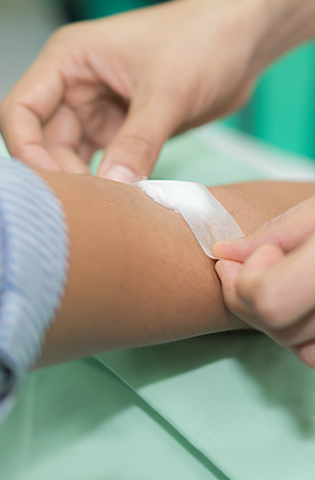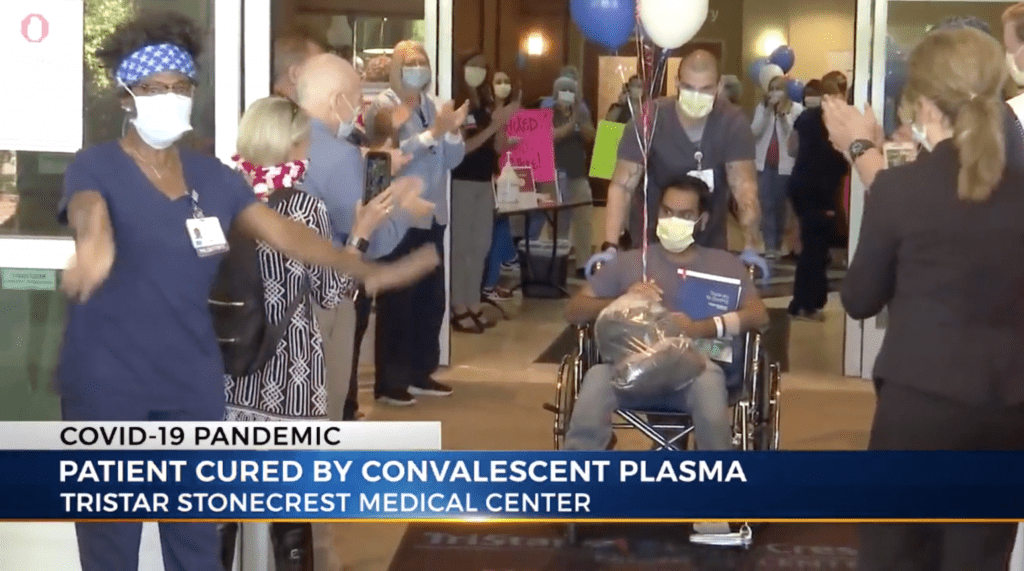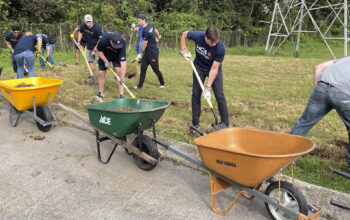Your antibodies could be the key to helping critically ill patients recover. Here’s how you can get involved.


When it comes to battling COVID-19, HCA Healthcare is committed to making sure our patients have access to the most promising therapies. That’s why HCA Healthcare has joined a national study, led by the FDA and the Mayo Clinic, to test whether convalescent plasma—plasma from people who have recovered from COVID-19—can help current patients. Now, 175 participating affiliate hospitals are looking for qualified plasma donors in 20 states.
“We are proud to play a part in broader global public health initiatives, including this and other research, to identify effective COVID-19 treatments,” says Dr. Jonathan Perlin, chief medical officer at HCA Healthcare. “We’re encouraging the communities HCA Healthcare serves to join us in this important effort to help identify donors.”
How it works
When you get sick with COVID-19, your immune system develops antibodies that help it fight the virus.
“These antibodies are like guided missiles that will home right in on that virus,” says Dr. Fred LeMaistre, physician-in-chief of blood cancers at Sarah Cannon and the senior physician on the Sarah Cannon Research Institute/HCA Healthcare Research Institute task force overseeing the development and implementation of COVID-19-related research.
“So our hope is that by using plasma from a donor who recovered from COVID-19 to treat a patient with an active infection, we would help that patient recover faster and avoid complications, such as pneumonia or the need for ICU care or a ventilator.”
While convalescent plasma has been used safely as far back as the 1890s—and more recently against outbreaks of other coronaviruses such as SARS and MERS—Dr. LeMaistre stresses that it’s not yet a proven therapy.
“It’s been used a lot, and we know from those experiences that it seems to be relatively safe,” says Dr. LeMaistre. “But there’s not a lot in the medical literature that shows exactly when to use it, how to use it and how often we should expect it to work in certain kinds of viral infections. That’s why this study is so important.”
It’s so wonderful to be in a place like HCA Healthcare that has the resources to be able to sponsor this type of research.— Dr. Fred LeMaistre, Sarah Cannon
Signs of success
On May 1, TriStar StoneCrest Medical Center in Smyrna, Tenn., celebrated its first patient—a 28-year-old man—to recover from COVID-19 with the help of convalescent plasma treatment.

Photo: WKRN, Nashville, Tenn.
“This young patient, who basically got a very terrible version of COVID-19, ended up in our ICU, became very sick, and then recovered very quickly with plasma,” Dr. Vineesha Arelli, a critical care physician at TriStar StoneCrest, told Nashville TV station WKRN. “We gave him two doses of it, very quickly he started improving and now has walked out … not requiring any other oxygen and not requiring any other therapy.”
Successes like this are helping doctors learn more about how convalescent plasma is best used. For example, Dr. Arelli says the earlier patients are treated with it, the better—it’s all about targeting the window when patients are a little sick, before they become very sick. “That window gives you an opportunity to try different maneuvers like plasma.”
How you can help
Dr. LeMaistre says that in just the first few weeks of the study, physicians in HCA Healthcare were able to register more than 500 patients with COVID-19 to receive convalescent plasma and treat almost 300 of them. The remainder are waiting for a donor of convalescent plasma.
There are so many people who’ve been really ill with COVID-19 and have come back wanting to contribute, to help others out by donating plasma. It’s really heartwarming to see people come together like that in a time of need.— Dr. Fred LeMaistre, Sarah Cannon
If you have recently recovered from COVID-19, consider donating your plasma to the study. You can confirm your eligibility and get connected to a local blood donation site by calling 833-582-1971 or completing our online questionnaire.
If you haven’t had COVID-19, consider donating blood. According to the FDA, critical blood donations are down due to the implementation of social distancing and the cancellation of blood drives. The American Red Cross can help you find a donation center near you.


